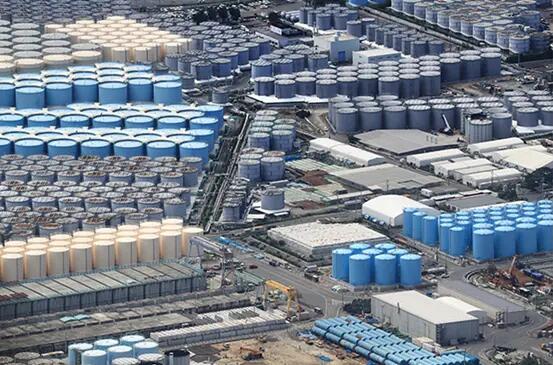Japan announced today that it will dump millions of gallons of radioactive water from the damaged Fukushima nuclear plant into the Pacific Ocean. Local fishermen, environmental groups and neighboring countries all protested the move. As NPR's Anthony Kuhn reports from Seoul, discharging the water and cleaning up the wrecked plant will take at least decades.
ANTHONY KUHN, BYLINE: Announcing the government's decision, Prime Minister Yoshihide Suga claimed that the government's plan is realistic and pledged that its handling of the water would exceed safety standards.
(SOUNDBITE OF ARCHIVED RECORDING)
PRIME MINISTER YOSHIHIDE SUGA: (Speaking Japanese).
KUHN: "Discharging the treated water is an unavoidable issue," he said, "in the decommissioning of the Fukushima Daiichi nuclear plant."
The government says the water will be treated before being released gradually. It'll start in two years and continue for decades. Haruo Kurasawa is a Tokyo-based science journalist. He says that the decision represents a consensus within the Japanese and international establishments.
HARUO KURASAWA: (Through translator) At this point, we have no choice but to release the treated water. This is the general perception of researchers, the government and nuclear regulators.
KUHN: The water was used to cool reactors at the Fukushima plant since it was wrecked by the 2011 earthquake and tsunami. There's also contaminated groundwater. It's been stored in huge tanks at the plant. But the plant's operator, the Tokyo Electric Power Company, or TEPCO, says they'll run out of space next year. Kurasawa says that while dumping the water in the ocean is problematic, there are no other great options.
KURASAWA: (Through translator) It's also not desirable to keep the water in tanks and place them so close to where people live.
KUHN: TEPCO initially argued that treating the water removed all radioactive contaminants except for tritium, which some scientists say is only harmful in large doses. But Ayumi Fukakusa, a campaigner at Friends of Earth Japan, a Tokyo-based NGO, says TEPCO has created mistrust by withholding information in the past.
AYUMI FUKAKUSA: It turned out that the water contains more than tritium, some more radioactive materials that also in the water. But they didn't disclose that information before.

KUHN: Japanese media say that as recently as February, shipments of black rockfish from Fukushima had to be halted after samples were found to contain unsafe levels of another radioactive contaminant, cesium. Fukakusa also accuses Japan's government of ignoring the voices of its citizens.
FUKAKUSA: The process of decision-making is quite undemocratic. The government and TEPCO said that, without consent from the fishing communities, they won't discharge the contaminated water. But that promise was completely broken.
KUHN: Last week, Prime Minister Suga met with Hiroshi Kishi, president of Japan's National Federation of Fisheries Cooperatives, to try to get the group's support for dumping the water. Kishi spoke to reporters afterwards.
(SOUNDBITE OF ARCHIVED RECORDING)
HIROSHI KISHI: (Speaking Japanese).
KUHN: "Our opposition to the move will never change, not even one bit," he said. "It's important for the government to handle this matter responsibly."
Neighboring South Korea called Japan's decision to dump the water a potential threat to its citizens health and environment. China called it extremely irresponsible. The U.S. State Department commented in a statement that Japan's approach appears to be in line with global standards.
Anthony Kuhn, NPR News, Seoul.












